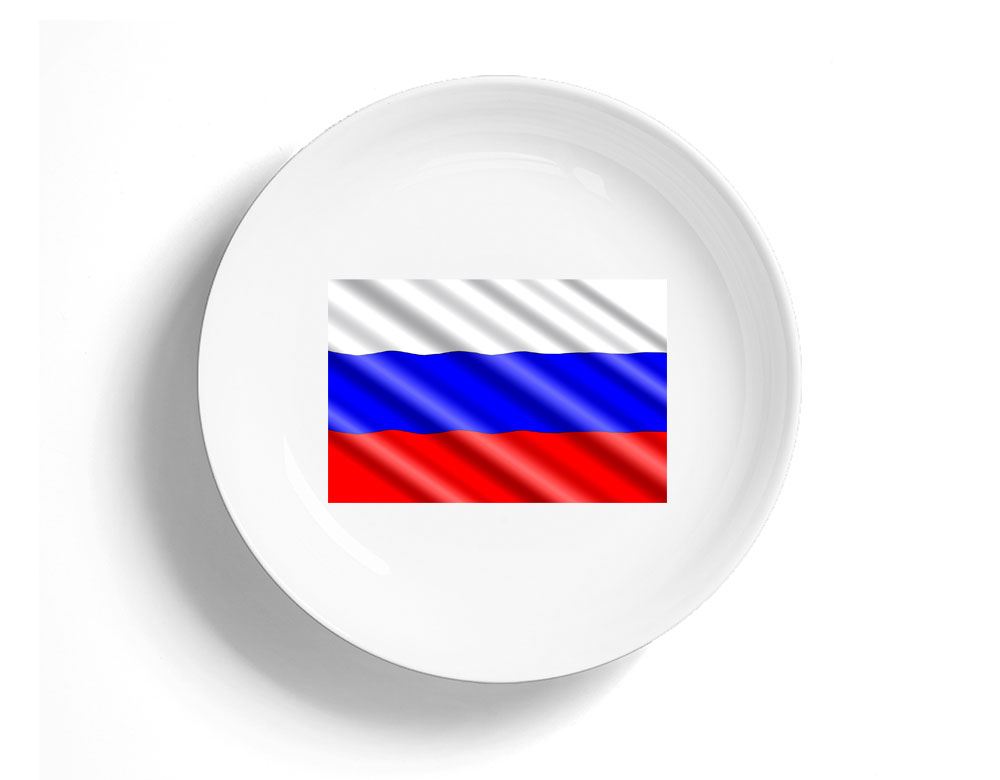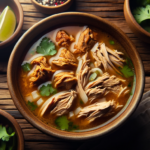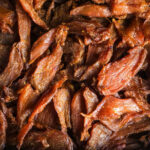
Want to know more about Russian cuisine? Then you’ll want to get familiar with some basic Russian food terms.
Russia is the largest country in the world in terms of total area. It spans from eastern Europe to northern Asia. It was part of the USSR (the Union of Soviet Socialist Republics) between 1921 to 1991 along with the now post-soviet countries of Armenia, Azerbaijan, Belarus, Estonia, Georgia, Kazakhstan, Kyrgyzstan, Latvia, Lithuania, Moldova, Tajikistan, Turkmenistan, Ukraine and Uzbekistan. Because all of these countries are adjacent to each other and had been part of one country for decades, they share many cultural similarities.
Russian cuisine
Russian cuisine is reflective of the culture, geography, weather and history.
The great majority of Russians are Orthodox Christians which requires fasting and abstinence during certain times of the year. This led to Russians creating many vegetarian dishes that use pickles, beets, mushrooms, potatoes and more.
However, plenty of traditional dishes do contain different types of meats, poultry and seafood. Typical ingredients used in Russian food include mayonnaise, sour cream and vegetable oil.
Because the climate can be quite severe in Russia, limited local crops have been able to flourish. This forced Russians to discover many different combinations of ingredients to produce a variety of flavors and figure out how to preserve these ingredients. Pickling vegetables and creating soups and stews became an effective way to keep vegetables and other ingredients edible through long winters.
Russian food terms
Expand your international dining vocabulary with these basic food-related words translated from English to Russian.
meat – мясо (myaso)
poultry – домашняя птица (domashnyaya ptitsa)
seafood – морепродукты (moreprodukty)
- fish – рыбы (ribeh)
- shrimp – креветка (krevetka)
- oyster – устрица (ustritsa)
- shellfish – моллюски (mollyuski)
meatless/no meat – нет мяса (nyet myasa)
- vegetables – овощи (ovoshchi)
- fruits – фрукты (frukty)
- eggs – яйца (yaytsa)
- tofu – тофу (tofu)
- nuts – орех (oriehkh)
- vegetarian – вегетарианец (vegetarianets)
- vegan – веган (vegan)
drinks – напитки (napitki)
other eating/dining-related terms
- yes – да (da)
- no – нет (nyet)
- good – хороший (khoroshiy)
- yummy – вкуснятина (vkusnyatina)
- eat – есть (yest’)
- cook – повар (povar)
- I’m hungry – я голоден (ya goloden)
- I’m full – я наелся (ya nayelsya)
- more – более (boleye)
- less – меньше (men’she)
- only – Только (Tol’ko)
- please – пожалуйста (pozhaloosta)
- thank you – Спасибо (spasiba)
- baked – запеченный (zapechennyy)
- fried – жареный (zharenyy)
- grilled – жареный (zharenyy)
- roasted – жареный (zharenyy)
- steamed – приготовленный на пару (prigotovlennyy na paru)
- breakfast – завтрак (zavtrak)
- lunch – обед (obed)
- dinner/supper – ужин (uzhin)
- hors d’oeuvre – закуска (zakuza)
- hot – горячей (goryachey)
- warm – теплый (teplyy)
- cold – холодный (kholodnyy)
- bitter – Горький (Gor’kiy)
- salty – соленый (solenyy)
- spicy – пряный (pryanyy)
- sweet – милая (milaya)
- allergic – аллергический (allergicheskiy)
- bathroom – ванная (vannaya)
Watch this video to hear how letters and words sound in Russian.
Russian food to try
- blini – Russian sweet or savory-filled crepes
- borscht – beet soup; a Russian comfort food
- kotleti – fried beef or chicken patties
- pelmeni – meat-filled dumplings; considered to be the national dish of Russia
- pirozhki – meat or vegetable-filled pastries
- shashlik – sweet and tangy Russian kebabs
- solyanka – sweet and sour soup
Interested in learning about other cuisines around the world? Discover food terms from other countries here.







